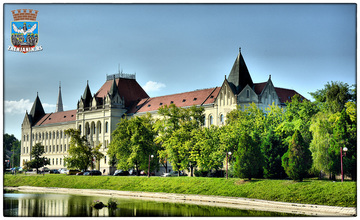History

World War I and the Kingdom of Yugoslavia
After Gavrilo Princip had assassinated Archduke Franz Ferdinand in Sarajevo (June 28th 1914), more than 30 citizens of Bečkerek were accused by the Austria-Hungary’s authorities for high treason. Among them was Dr. Emil Gavrila, who together with Svetozar Miletić and Jaša Tomić, worked very hard on the cultural and social strengthening of Serbs. The Serbs recruited in the Austria-Hungary’s army began soon to desert, so that they would not fight against their own people. 7000 of them formed volunteer detachments (people were from Banat and Srem) at the Russian front and fought at Dobrudža, but 79 of them fought on the Salonica front, too.
After four hard years and the golgotha of Serb people, the Serbs forces made a breakthrough of the Salonice front in 1918 and began to liberate their own country. The First Army in command of Duke Petar Bojović freed Belgrade on 1st November 1918 and began to free Vojvodina. On 9th November the Serbs forces arrived in Novi Sad, on 12th in Vršac and Kikinda, on 17th in Great Bečkerek. It was the last day of October 1918, when that the breath of freedom was felt, and the Serb Chamber of People of the town founded in the war conditions, as a temporary authority with Dr. Slavko Župunski at its head. Serb army, the infantry iron regiment “Duke Mihajlo” and the infantry brigade with Colonel Dragutin Ristić in command came into the town on 17th November 1918. A few days after Vojvodina had been freed, its provinces united with the Kingdom of Serbs and on December 1st 1918 the Kingdom of Serbs, Croats and Slovenes was founded, as the first South Slavic state.
The town of Great Bečkerek became the administrative centre of Torontal-Tamiš tribal state, and after its repealing, the town became the headquarters of District Office. By the Town Council decision made on 29th September 1934, and confirmed by the Town Authority on 18th February 1935, the town was renamed Petrovgrad, after the King Petar I Karadjordjevic, the Liberator.
 Skupstinagrada Zrenjanina
Skupstinagrada Zrenjanina